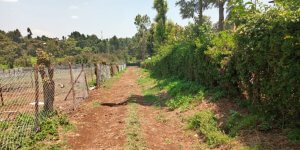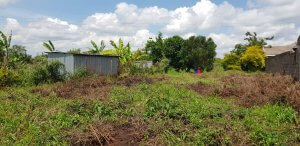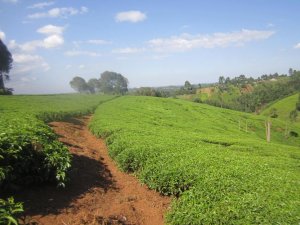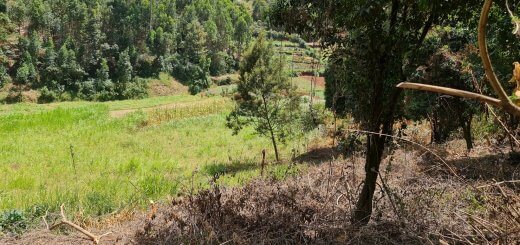Unlocking Tranquility: Land for Sale in Lari Kiambu – Your Guide to Serene Ownership


land for sale in lari kiambu
Introduction to Land for Sale in Lari Kiambu
Embarking on the journey of land ownership in Lari, Kiambu, unveils a world of possibilities. This guide serves as your compass through the scenic landscapes and diverse opportunities that Lari offers to prospective landowners. From understanding the unique features of the area to addressing common queries, let’s delve into the nuances of acquiring land in this tranquil region.
The Allure of Lari, Kiambu
Lari, situated in the heart of Kiambu County, is a haven of natural beauty and serenity. The lush landscapes, favorable climate, and the promise of a tranquil lifestyle make it an enticing destination for those seeking to invest in land. As we explore the opportunities, let’s unravel the unique features that contribute to Lari’s allure.
Location and Accessibility
Strategically positioned, Lari enjoys easy accessibility from Nairobi and neighboring areas. The well-connected road network ensures a seamless journey, making Lari a convenient choice for both local and urban dwellers. The peaceful environment and proximity to essential amenities further enhance its appeal.
Types of Land Available
Lari’s real estate market offers a diverse range of land options to cater to varying preferences and needs. Whether you envision a sprawling piece of land for agricultural pursuits or a smaller parcel for a cozy home, Lari provides a spectrum of choices to explore.
Navigating the Purchase Process
Acquiring land is a significant investment, and the process requires careful consideration and strategic navigation. For prospective buyers eyeing land for sale in Lari Kiambu, understanding the intricacies of the purchase process is paramount. Here’s a comprehensive guide to help you navigate this journey seamlessly.
1. Define Your Objectives and Budget
Before venturing into the market, it’s crucial to have a clear vision of your objectives. Ask yourself why you want to purchase land in Lari Kiambu. Are you planning to build a home, engage in agriculture, or make a long-term investment? Additionally, set a realistic budget that aligns with your financial capabilities.
2. Engage with Reputable Real Estate Agents
Reputable real estate agents play a pivotal role in simplifying the land-buying process. They possess local market knowledge, understand the dynamics of Lari, and can guide you towards suitable land options. Look for agents with a track record of successful transactions in the specific region.
3. Identify Suitable Plots
Lari, Kiambu, offers a diverse range of land options, from expansive agricultural plots to smaller residential parcels. Work closely with your real estate agent to identify plots that align with your objectives. Consider factors such as topography, soil quality, and proximity to amenities during this selection process.
4. Conduct Thorough Due Diligence
Due diligence is the backbone of a secure land transaction. Verify the legal status of the land by examining title deeds, confirming property ownership, and ensuring compliance with local regulations. Engage legal professionals to guide you through this process and address any potential red flags.
5. Understand Local Zoning and Land Use Regulations
Lari, like any other region, is subject to specific zoning and land use regulations. Understand these regulations to ensure that your intended use for the land aligns with local requirements. This step is crucial to avoid complications and legal challenges in the future.
6. Negotiate Effectively
Once you’ve identified a suitable plot and completed due diligence, the negotiation process begins. Effective negotiation involves understanding the market trends in Lari, assessing the value of the land, and collaborating with your real estate agent to secure a favorable deal. Be prepared to communicate your needs and concerns during negotiations.
7. Secure Financing
If you require financing for the land purchase, work with financial institutions that specialize in real estate loans. Ensure that you have a clear understanding of the loan terms, interest rates, and repayment schedules. Securing financing early in the process adds a layer of certainty to your land acquisition plans.
8. Finalize Legal Documentation
Once negotiations are successful and financing is secured, the next step involves finalizing the legal documentation. This includes drafting a sales agreement, obtaining necessary approvals, and ensuring that all legal requirements are met. Engage legal professionals to review and oversee the documentation process.
9. Conduct a Final Site Inspection
Before finalizing the transaction, conduct a final site inspection. This allows you to physically assess the condition of the land, check for any potential issues, and ensure that it aligns with your initial expectations. If needed, involve a land surveyor to demarcate the boundaries accurately.
10. Close the Transaction
With all due diligence completed, legal documentation finalized, and a successful site inspection, you’re ready to close the transaction. This involves the transfer of ownership, payment of the agreed-upon amount, and the issuance of relevant legal documents to confirm your status as the new landowner.

land for sale in lari kiambu
Legal Considerations and Due Diligence
Verifying Property Ownership
One of the foundational steps in the legal journey of land acquisition is verifying property ownership. In the case of land for sale in Lari Kiambu, potential buyers should engage legal professionals to meticulously scrutinize title deeds and establish the legitimacy of the property’s current ownership. This step is crucial for safeguarding against potential disputes and ensuring that the land is free from encumbrances.
Compliance with Local Regulations
Kiambu, like any other region, has specific regulations governing land transactions. Prospective buyers must familiarize themselves with these regulations to ensure compliance throughout the purchasing process. From zoning laws to environmental regulations, understanding and adhering to local rules contribute to a smooth and legally sound acquisition.
Environmental Impact Assessments
Given the lush landscapes of Lari, environmental considerations are paramount. Conducting environmental impact assessments, especially for those interested in agricultural or development projects, is crucial. This ensures that the intended use of the land aligns with environmental guidelines, minimizing the ecological footprint and ensuring sustainable land use practices.
Surveying and Boundaries
Precise delineation of land boundaries is a fundamental aspect of due diligence. Engaging professional surveyors to accurately map out the boundaries of the land for sale in Lari Kiambu, is essential. This not only prevents boundary disputes but also provides a clear understanding of the land’s spatial characteristics.
Title Deed Verification
The title deed is a legal document that establishes ownership rights. As part of due diligence, potential buyers should verify the authenticity and accuracy of the title deed associated with the land for sale in Lari Kiambu. Any discrepancies or irregularities in the title deed must be addressed and clarified before proceeding with the purchase.
Access Rights and Easements
Understanding access rights and potential easements is vital, especially in rural areas like Lari. Buyers need to ensure that the land has legal and practical access rights, and there are no encroachments or restrictions that could impede future development plans. Easements, if any, should be clearly delineated and understood.
Engaging Legal Professionals
Navigating the legal intricacies of land acquisition can be complex. Engaging legal professionals with expertise in real estate transactions, specifically in the context of land for sale in Lari Kiambu, is highly advisable. These professionals can provide invaluable guidance, ensuring that the entire process adheres to legal standards.
Government Approvals and Permits
Certain land uses may require government approvals and permits. Whether it’s for residential, commercial, or agricultural purposes, obtaining the necessary approvals is part of due diligence. This includes confirming that the land is designated for the intended use and obtaining any required permits from local authorities.
Understanding Future Obligations
Legal due diligence extends beyond the present transaction; it involves understanding future obligations. This includes potential taxes, levies, and any ongoing obligations tied to the land. Being aware of these future considerations ensures that buyers are well-informed about the long-term financial implications of their investment.
Practical Tips for Prospective Buyers
- Define Your Purpose
- Before embarking on the search for land for sale in Lari Kiambu, clearly define your purpose. Whether you plan to build a home, engage in agricultural activities, or explore commercial ventures, having a distinct vision will guide your search and decision-making process.
- Set a Realistic Budget
- Understanding your financial constraints is paramount. Evaluate your budget realistically, factoring in not just the cost of the land but also associated expenses such as legal fees, survey costs, and potential development expenses. This ensures that your investment aligns with your financial capacity.
- Engage Reputable Real Estate Agents
- Real estate agents with local expertise play a crucial role in your land-buying journey. Seek out reputable agents in Lari, Kiambu, who have a deep understanding of the area, market trends, and legal intricacies. Their guidance can prove invaluable in identifying suitable plots and navigating the complex process.
- Conduct Thorough Due Diligence
- Due diligence is non-negotiable when considering land for sale in Lari Kiambu. Verify property ownership, scrutinize title deeds, and ensure compliance with local regulations. Engage with legal professionals to guarantee a smooth and legally sound transaction.
- Survey the Land
- Physical inspections are vital. Survey the land to ascertain its topography, boundaries, and any potential challenges or advantages. This on-the-ground assessment provides critical information that might not be apparent from documents alone.
- Consider Future Developments
- Stay informed about ongoing and planned infrastructure developments in Lari. This knowledge not only contributes to your understanding of the area’s growth potential but also impacts the future value of the land. Areas undergoing infrastructural enhancements often witness increased property appreciation.
- Understand Zoning Regulations
- Lari, like any other region, has zoning regulations that dictate land use. Understand these regulations to ensure that your intended use aligns with local guidelines. This prevents potential conflicts and ensures a smooth development process.
- Check Access and Utilities
- Accessibility is key when evaluating land. Ensure that the plot has convenient access to roads, and consider the availability of utilities such as water, electricity, and sewage systems. These factors significantly influence the land’s suitability for your envisioned purpose.
- Explore Financing Options
- If purchasing land in Lari requires financial assistance, explore financing options available to you. Understand the terms and conditions of loans or mortgages, and choose an option that aligns with your long-term financial goals.
- Connect with the Community
- Engaging with the local community fosters a sense of belonging. Attend community meetings, connect with neighbors, and gain insights into the cultural dynamics of Lari. This not only enriches your overall experience but also aids in a seamless integration into the community.

Future Prospects for Landowners
1. Property Appreciation:
One of the key future prospects for landowners in Lari is the potential for significant property appreciation. The area’s natural beauty, coupled with its strategic location, positions it as a desirable destination for both residential and commercial development. As demand for land in Lari grows, the value of properties is expected to appreciate, providing a favorable return on investment for landowners.
2. Ongoing Infrastructural Developments:
Lari is witnessing ongoing and planned infrastructural developments that contribute to its overall appeal. Improved roads, enhanced connectivity, and upgraded utilities not only enhance the quality of life for residents but also elevate the value of land in the area. Landowners can anticipate increased demand as infrastructural projects unfold, making their investments more lucrative.
3. Emerging Real Estate Trends:
Staying abreast of emerging real estate trends is crucial for landowners in Lari. The real estate landscape is dynamic, and understanding evolving trends can help landowners make informed decisions. Whether it’s embracing sustainable development practices, catering to changing housing preferences, or aligning with eco-friendly initiatives, being attuned to trends positions landowners for long-term success.
4. Development of Commercial Spaces:
As Kiambu County continues to experience urbanization and economic growth, the demand for commercial spaces is likely to rise. Landowners in Lari have the opportunity to explore mixed-use developments, creating spaces that blend residential, commercial, and recreational elements. This diversification can attract a diverse range of tenants or buyers, contributing to the economic viability of the land.
5. Potential for Agribusiness:
Lari has a rich agricultural heritage, and this aspect can play a pivotal role in the future prospects for landowners. Those with larger parcels of land may consider engaging in agribusiness ventures. Whether it’s organic farming, floriculture, or other agricultural activities, leveraging the fertile land in Lari can provide additional income streams for landowners.
6. Community Expansion:
Anticipating the expansion of the local community is integral to understanding the future prospects for landowners. As more people discover the appeal of Lari, the community is likely to grow. This growth can translate into increased demand for residential plots, rental properties, and essential services, presenting opportunities for landowners to cater to the evolving needs of the expanding community.
7. Tourism and Recreational Development:
Lari’s natural beauty and serene environment position it as a potential hub for tourism and recreational development. Landowners can explore opportunities to develop resorts, eco-friendly lodges, or recreational facilities that capitalize on the area’s scenic attractions. This not only enhances the appeal of Lari but also creates avenues for landowners to engage in the growing tourism sector.
8. Collaboration with Local Initiatives:
Landowners can actively participate in and collaborate with local initiatives aimed at community development. This involvement not only fosters a sense of social responsibility but also aligns with the ethos of sustainable and community-centric living. Such collaboration can enhance the reputation of the land, making it more attractive for potential buyers or developers.
9. Integration of Smart Technologies:
The integration of smart technologies in urban planning and property development is an emerging trend. Landowners in Lari can explore incorporating smart infrastructure and technologies in their developments, catering to the preferences of a technologically savvy generation. This forward-thinking approach positions the land for long-term relevance and appeal.
10. Preservation of Natural Spaces:
As the world places a greater emphasis on environmental conservation, landowners in Lari have an opportunity to contribute to the preservation of natural spaces. Designing developments that incorporate green spaces, eco-friendly practices, and sustainable design elements not only aligns with global trends but also positions the land as part of a responsible and forward-looking community.
Challenges and Considerations
Market Dynamics and Competition
One of the primary challenges in the quest for land for sale in Lari Kiambu lies in understanding the market dynamics. The demand for land can fluctuate based on various factors, including economic conditions and regional development plans. Additionally, the allure of Lari’s natural beauty and strategic location may result in increased competition for prime plots. As a buyer, being aware of these dynamics helps in devising effective strategies to secure the desired piece of land.
Legal Intricacies and Due Diligence
Navigating the legal landscape is crucial when considering land for sale in Lari Kiambu. Property ownership verification, scrutiny of title deeds, and adherence to local regulations are critical steps in the due diligence process. Legal intricacies can vary, and engaging with legal professionals familiar with Kiambu’s regulatory framework is essential to ensure a secure and compliant transaction.
Potential Hidden Costs
Buyers should be cognizant of the potential hidden costs associated with land acquisition in Lari. These costs may include legal fees, survey expenses, and development costs. Understanding the full financial implications allows prospective buyers to budget more accurately, avoiding unforeseen financial burdens during and after the purchase process.
Infrastructure and Accessibility
While Lari is known for its natural beauty, the accessibility and existing infrastructure may present considerations for potential landowners. Assessing the current state of roads, utilities, and proximity to essential amenities is crucial. Additionally, being informed about any planned infrastructure developments in the area can impact the future value and accessibility of the purchased land.
Environmental Factors and Zoning Regulations
Lari’s scenic landscapes and agricultural potential are key attractions for land buyers. However, understanding the environmental factors and zoning regulations governing the area is paramount. Certain plots may have specific restrictions or requirements due to environmental considerations or designated land use. Prospective buyers must align their plans with these regulations to avoid complications.
Economic and Political Stability
The economic and political stability of a region can significantly impact the real estate market, including land values and demand. Buyers considering land for sale in Lari Kiambu should stay informed about the broader economic and political landscape, as any instability can influence the investment’s long-term viability.
Availability of Financing Options
Securing financing for land purchases can pose challenges, depending on various factors such as credit history, interest rates, and the policies of lending institutions. Buyers should explore available financing options and understand the terms and conditions associated with land loans in Kiambu.
Cultural Integration and Community Dynamics
Aspiring landowners may also need to consider the cultural dynamics and community integration in Lari. Embracing local customs, participating in community activities, and understanding the local way of life contribute to a seamless integration into the vibrant community of Lari.
Land Quality and Potential Development
Assessing the quality of the land is essential for its intended purpose. Buyers should conduct soil tests, evaluate topography, and consider factors like water availability. Additionally, understanding the potential for development or restrictions on certain land parcels is crucial to align the purchase with long-term goals.
Frequently Asked Questions (FAQs)
1. What types of land are available for sale in Lari, Kiambu?
Lari offers a variety of land types, including agricultural plots, residential parcels, and mixed-use land.
2. How can I verify the legal status of land for sale in Lari Kiambu?
Engage with legal professionals to verify property ownership, scrutinize title deeds, and ensure compliance with local regulations.
3. What amenities are available in the vicinity of land for sale in Lari Kiambu?
Lari boasts proximity to schools, healthcare facilities, shopping centers, and essential amenities for residents.
4. Are there ongoing infrastructure developments in Lari?
Yes, ongoing and planned infrastructure projects enhance the value of land in Lari, contributing to its future prospects.
5. How do I navigate the purchase process for land in Lari?
Identify suitable plots, conduct due diligence, work with reputable real estate agents, and adhere to legal requirements for a smooth transaction.
6. What practical tips can help in a successful land purchase in Lari?
Set a realistic budget, understand local market trends, and have a clear vision for the land’s purpose to make informed decisions.
7. What are the challenges of buying land in Lari, Kiambu?
Challenges may include market dynamics, legal intricacies, and potential competition for prime plots.
8. How can I integrate into the community dynamics of Lari?
Embrace community interactions, respect local norms, and actively participate in cultural activities to seamlessly integrate into Lari’s community.
9. What are the future prospects for landowners in Lari?
Predictions for property appreciation, ongoing infrastructure projects, and emerging real estate trends create promising prospects for landowners.
Conclusion
Lari in Kiambu beckons with the promise of landownership and a tranquil lifestyle. Aspiring landowners can navigate the process with confidence, armed with knowledge about the area, legal considerations, and practical tips for a successful purchase. Whether you envision agricultural ventures, residential development, or a mix of both, Lari invites you to explore the opportunities that its land for sale holds.



